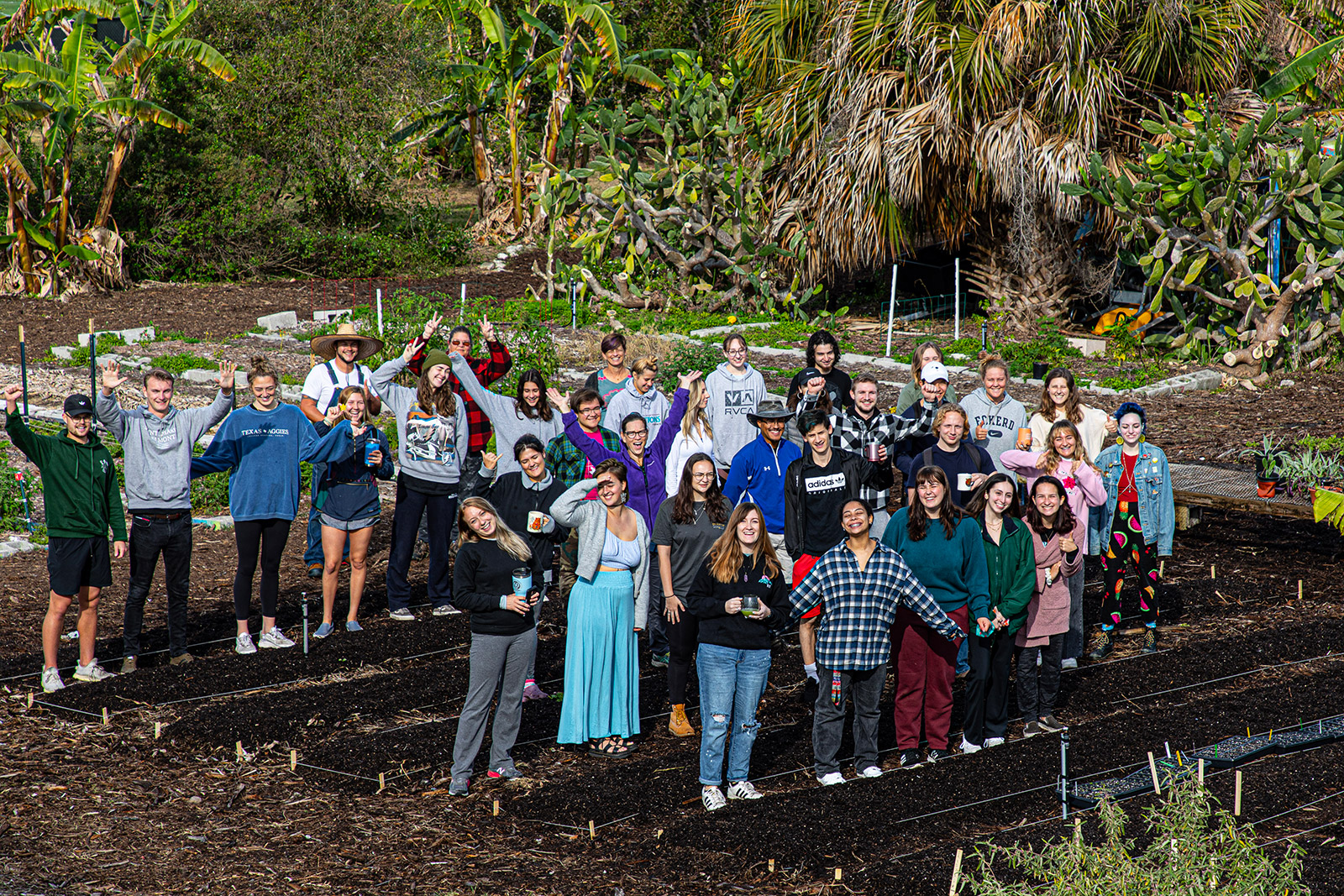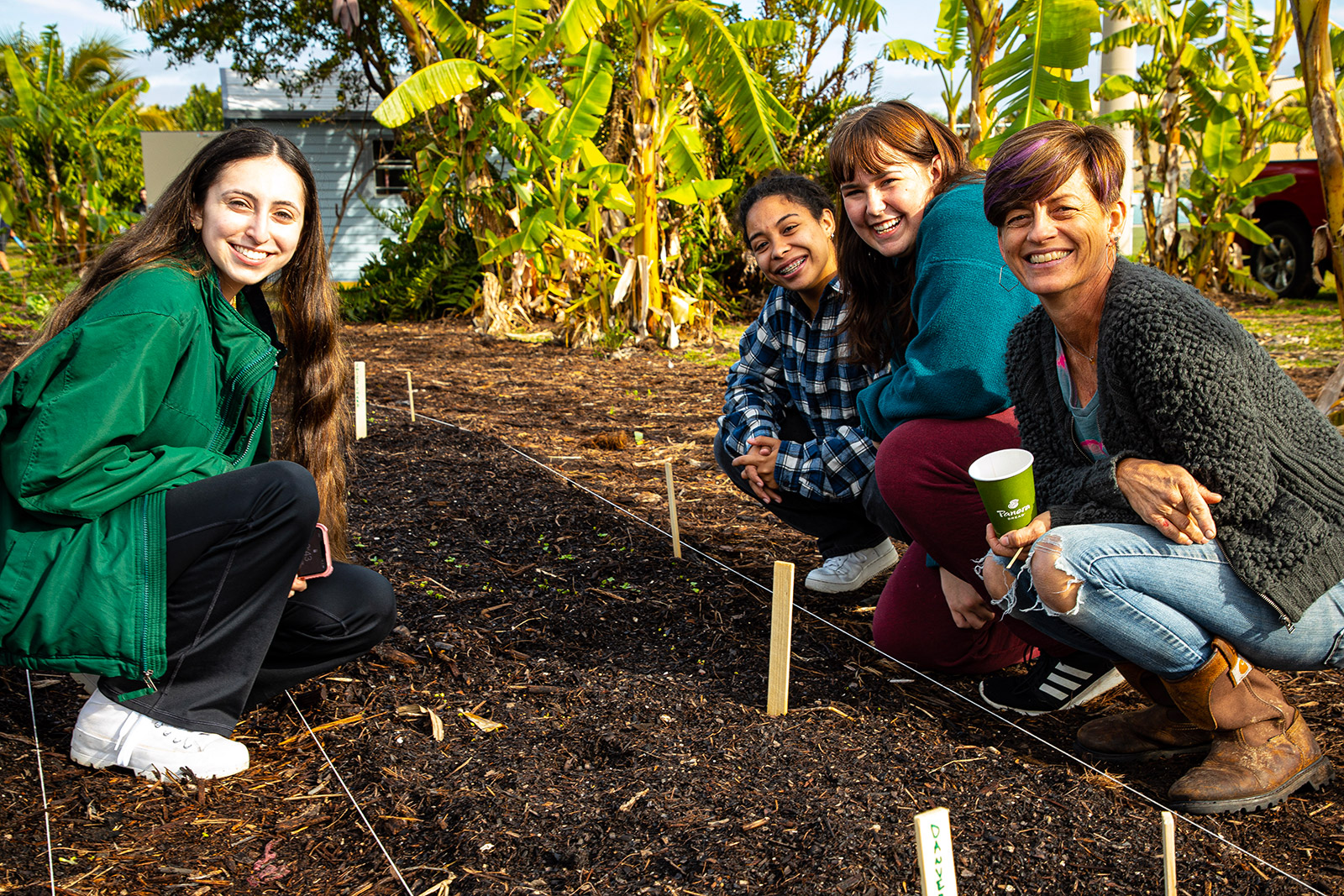Visiting Assistant Professor of Classics Michael Goyette, Ph.D., escorts his Classical Mythology students out to the Eckerd College Community Farm on a different type of quest. Each student is expected to observe the flora and choose a species to further research its place in myth and history.
It’s one of many of the unconventional uses faculty have found for Eckerd’s 1-acre working farm between the Johnson Athletic Field and the baseball field. Many classes utilize the farm for hands-on, outdoor learning. “We host classes from all [six] collegia on campus that range from the natural sciences to the humanities,” says Liza Conrad, Ph.D., the faculty chair of the Farm Committee.
Along with her role as an associate professor of biology, Conrad helps faculty members organize and plan their class visits to the farm. First, faculty must meet with her to discuss their ideas for visiting the farm, and fill out an academic agreement. Next, she will collaborate with both the instructor and the farm manager, Jon Prieto, to help plan activities and service the students can complete.
Left to right: Rubrum-Schaffhauser ’23, Karina Pomales ’24 and Zoe Smith ’24, students in the Gardening for Sustainability class, join Robin Clemmons, garden manager for DayStar Life Center, to plant seeds donated to the farm by the nonprofit organization. Photo: David Himmelfarb
When classes arrive at the Community Farm, students can expect to be led on a tour by one of the student ambassadors or Prieto. After that, activities vary according to the specific needs of each class. There are a variety of different ways classes can interact with the farm: Some classes visit only once, while others, like Environmental Studies Instructor and Internship Coordinator David Himmelfarb’s Food and Sustainability class, incorporate farm activities into class time on a weekly basis. Still others, like Communication Instructor Grace Lager’s Intro to Communication class, focus on community-building activities, while some dedicate farm visits to discussions surrounding class topics.
Goyette’s course focuses on analyzing and interpreting ancient Greek myths, studying ancient texts like Ovid’s Metamorphoses. For his visit to the farm, he assigned the Plants in Myth and Culture Project. The research on farm-specific plants by students will be used to create a walking tour through the farm featuring a richer history of the fruits and vegetables than their names and uses.
Outside of classes, the farm offers other opportunities. Students can volunteer to work there during the week, and this summer, Eckerd students have the opportunity to intern at the farm under the Office of Sustainability. The tireless work of people like Conrad and Prieto—as well as the director of sustainability, Evan Bollier ’11—has created a thriving environment for students to work, learn and play. “The farm is a place for interdisciplinary, hands-on learning,” Conrad says. “We see it as a true embodiment of the liberal arts.”














